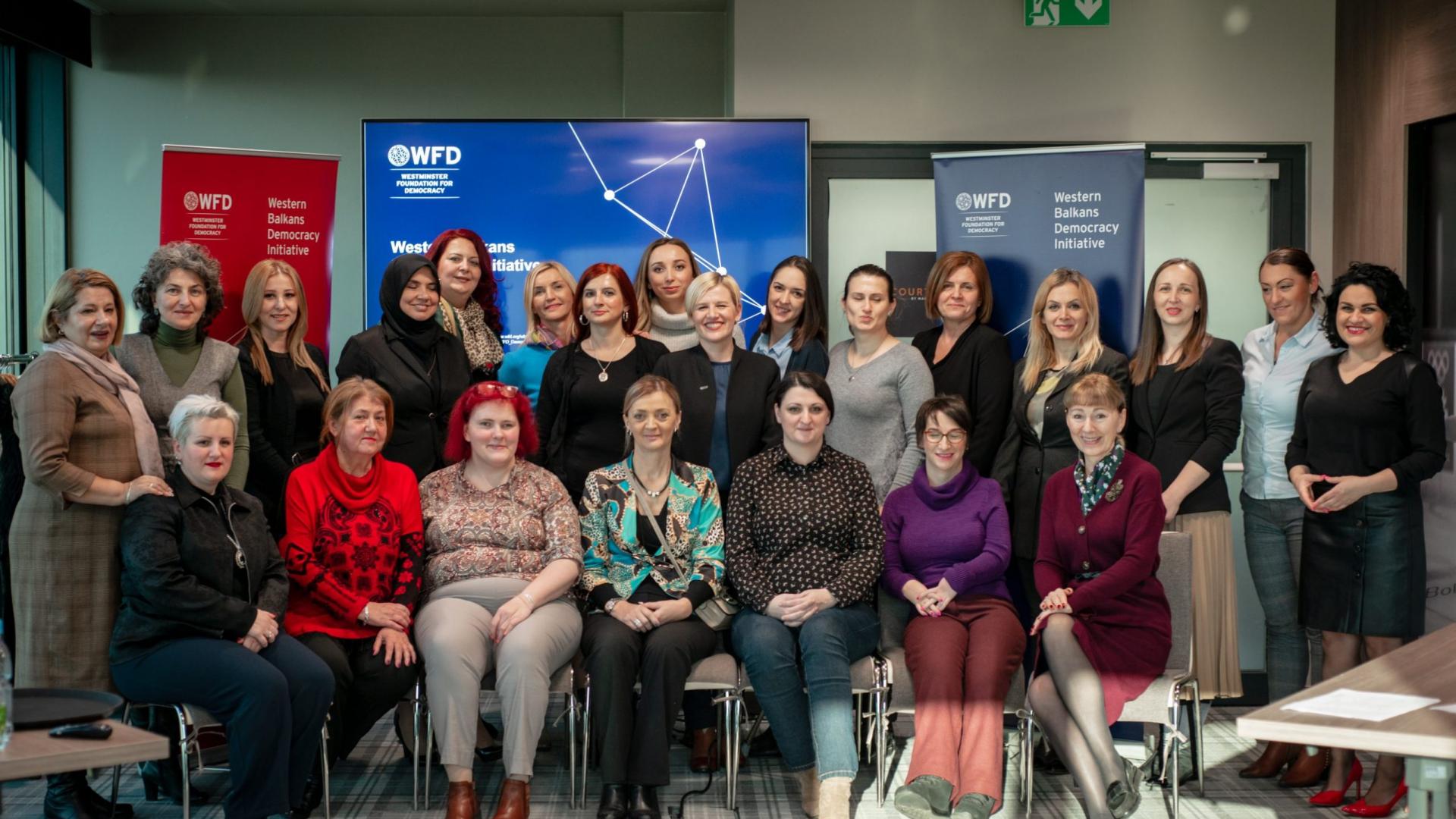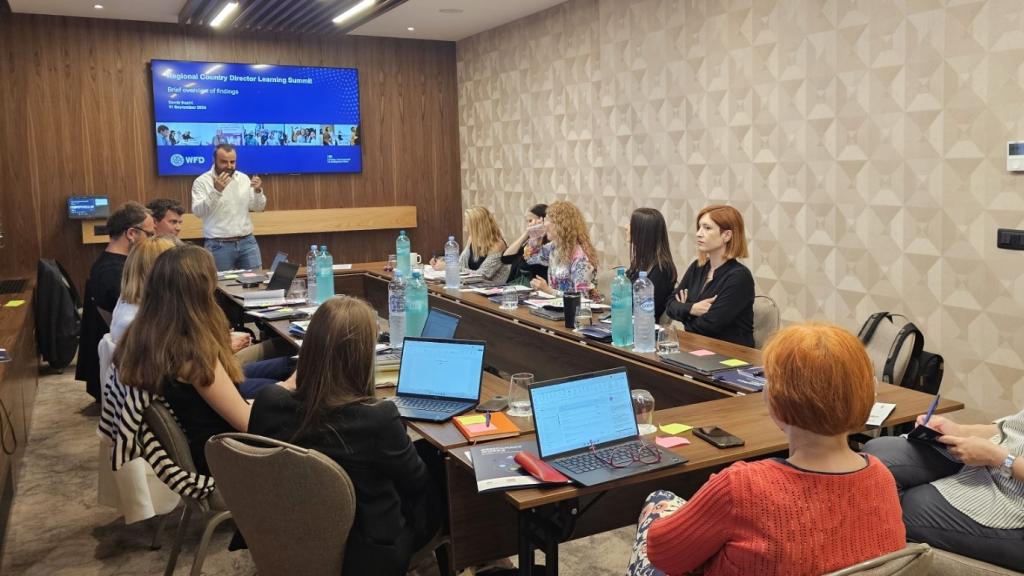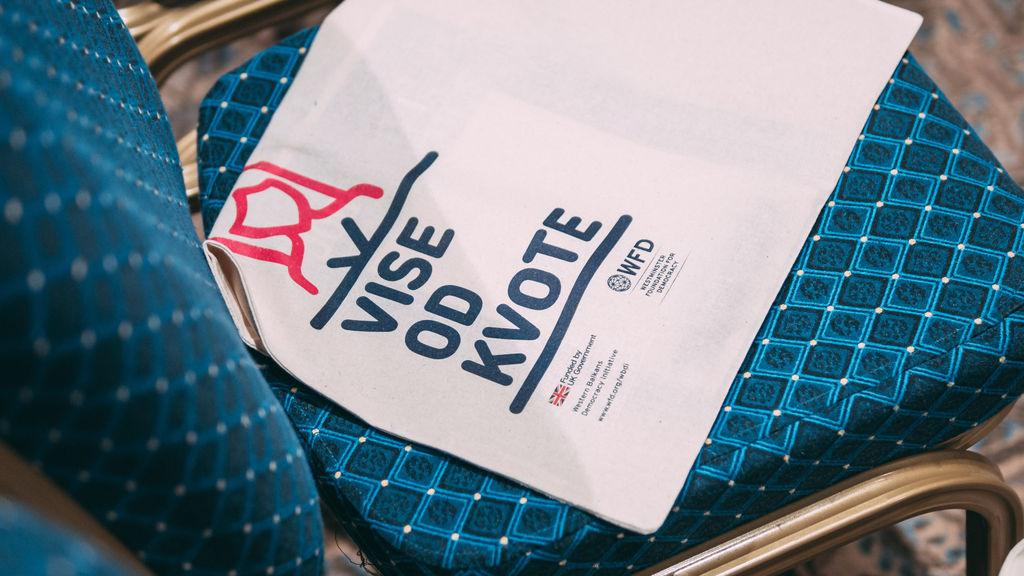Young women politicians make strides towards equality in Bosnia and Herzegovina

Studies show that women’s political leadership results in better outcomes for women and girls, as well as for society as a whole, and delivers progress in policy areas vital for economic growth and development, such as health, education and infrastructure. Even without these quantifiable dividends, the argument for women’s political empowerment is irrefutable – democracy cannot be said to exist if half of the population is not wholly engaged equally in decision-making.
Women in politics in Bosnia and Herzegovina
Gender inequalities exist in all spheres of society in Bosnia and Herzegovina (BiH), despite the fact that the constitution and legal system mandate equality for women and men. Women are underrepresented in political life, particularly in high-ranking positions and elected offices. Despite the obligatory 40% gender quotas for election lists, women’s actual representation remains low in all levels of government. This is especially prevalent in local government: at the last local elections in in November 2020, only 6.8% of candidates for mayor were women and less than 20% of women were elected in the local council elections. Only 18% of local councilors are women. At the current pace and without setbacks, it would take another 42 years and 11 local elections for women to be in 2/5 local elected offices – the legal minimum.
Following the 2018 general elections, the representation of women at the higher-level parliaments dropped by around 3%. The gender disparity in the legislative bodies is a reflection and extension of the power dynamics within the political parties: The leaders-presidents of all parties in Bosnia and Herzegovina are men. Women rarely lead the electoral lists, and receive far less support during the campaign, including financial support, media time, trainings, and mentoring. And whilst WFD’s 2016 study found that all parties respect the 40% quota for women on electoral lists, it also found that women are only visible in one tenth of media campaigns. Learning opportunities and resources in political parties in Bosnia and Herzegovina are usually reserved for men, making women’s path towards leadership much harder.
What is more, a recent study by WFD in the country showed that 60% of women in politics have experienced some form of violence, with young women even more at risk.
The pathway to change
To support women on their pathway to change, WFD provided direct, individual support to around 30 young women politicians in Bosnia and Herzegovina through networking and mentoring, as well as building their skills. The mentoring programme also aimed to raise the profile of women in politics and increase their chances of running for high-level positions within their parties and public offices. The programme focused on motivating and supporting young women politicians in finding resources on their own to deliver their proposed initiatives.
Following the programme, young women leaders who took part were at the forefront of a variety of changes and initiatives to benefit the whole of society – including ensuring cheaper public transport for children, progressing towards theatres and museums that are accessible to people with disabilities, improving transparency in the use and allocation of public money, and securing funding for garbage collection to improve the local environment.
Danijela Senic’s journey
Danijela Cetkovic Senic, who is currently serving as a councilor and head of the Commission on Gender Equality of the Municipality of East Sarajevo, was motivated to participate in WFD’s mentoring programme by her strong commitment to tackling domestic violence. Having experienced domestic violence herself, Daniela wanted to implement a campaign to increase awareness of the problem in an environment where it was not taken seriously. She aimed to tell women about the existing protection mechanisms they could turn to.
Ms Danijela Senic, participant of the Women Mentorship Programme (right) and her mentor, Ms Ivanka Markovic (left)
Senic found it difficult to direct attention to the issue of domestic violence because of a lack of resources and the taboo nature of the subject – in her community, she explained to us, there is an understanding that this kind of violence should not be reported.
WFD paired Senic with Ivanka Markovic, a prominent MP and politician who wrote the recent law on domestic violence that harmonized BiH legislation with the Istanbul convention, an international human rights treaty against violence against women and girls. Through the three-month mentoring process, Senic developer her skills in networking, planning and delivering campaigns, as well as different approaches to tackling domestic violence. Senic worked with her mentor Markovic on drafting documents, proposals, and assignments for research and analysis as well as learning about advocacy techniques and strategies.
Speaking about her experience, Danijela Cetkovic Senic said:
“WFD’s Mentoring Programme finally gave me the opportunity to implement the ideas focusing on violence against women that I have been fighting for years now.”
“Dr Ivanka Markovic was a role model to me even before I met her through the mentoring programme because of her character and integrity that she projected in the National Assembly of Republika Srpska.
“Dr Markovic was successful in passing on to me the knowledge I was missing. She motivated me so and I got the confidence and I believed that I could complete my initiative on time. This opened doors for me.”
Ms Senic putting up flayers saying “Violence against women is not a private thing”
After the mentoring scheme, Senic was able to secure funding for and implement an awareness-raising campaign in her local community that aimed at informing women about the new law on domestic violence that enables better protection for women. The campaign also supported women to report violence and use helplines through a new protocol on reporting with police and civil service that offers more protection to victims. There was a gap in the newly enacted legislation and its use, and Senic’s campaign aimed addressed this discrepancy.
In her capacity as president of the Commission on Gender Equality of the Municipality of East Sarajevo, Senic has also initiated policy discussions about increasing funding for programmes to end domestic violence and the expansion of training for social workers in dealing with violent individuals.
As a result of Markovic’s mentoring, Senic was able to organise high-level political meetings with institutional representatives, including the President of the Assembly of East Sarajevo and women representatives from all municipalities of the city to help achieve this change.
Danijela Senic’s story is one among many inspirational stories of young women leaders in BiH. Indeed, all the participating mentees in her cohort managed to fully deliver the results of their proposed initiatives.



